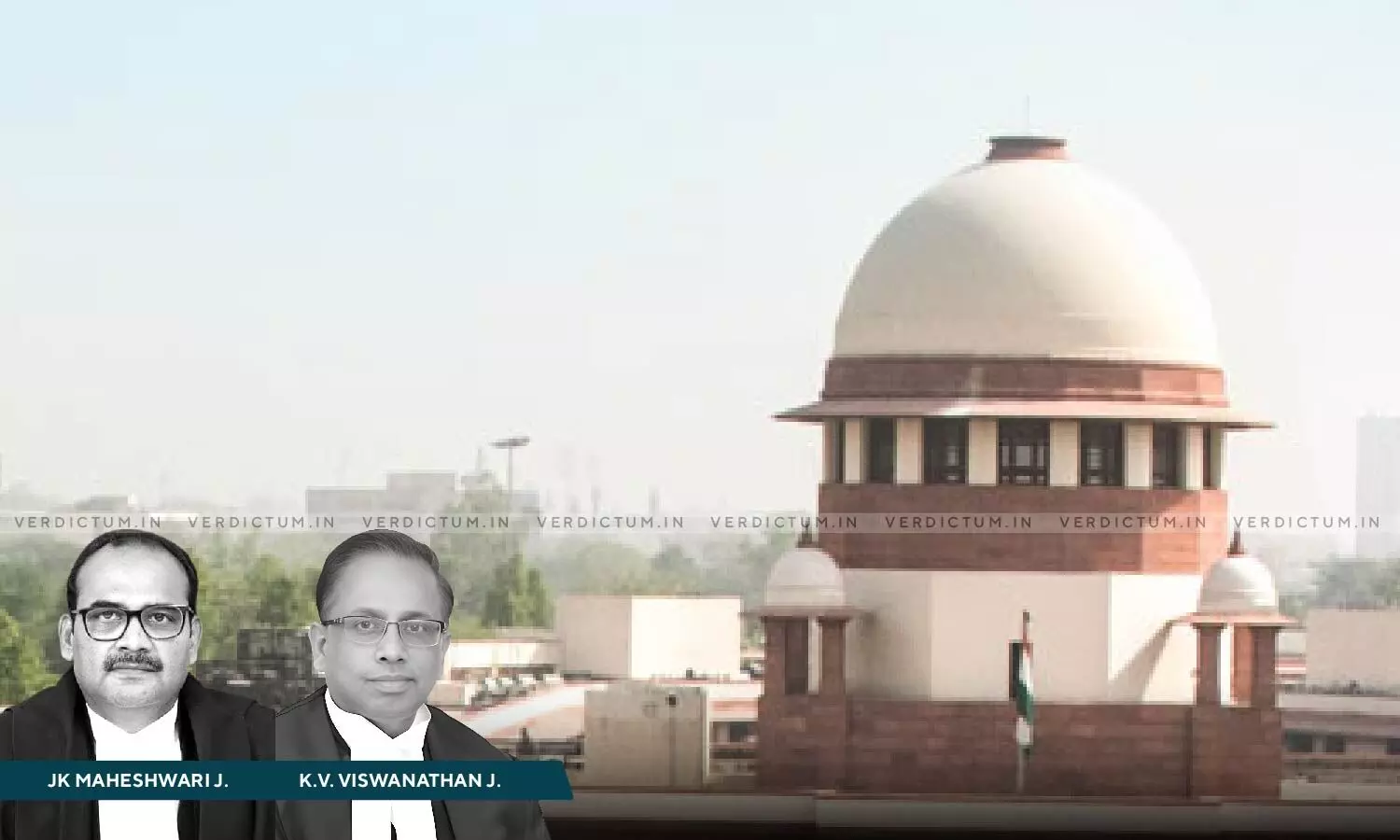
Candidate Not Possessing Valid Documentation Entitling His Eligibility Before Prescribed Cut-Off Date Cannot Complain Of Rejection Of His Claim: SC
 |
|Refusing to accept the claim of the petitioners that they were eligible EWS candidates and that it was only a delay caused in the production of proof thereof, the Supreme Court held that Rules 13, 27(3) and 28 of the CSE-Rules, 2022 are constitutionally valid to the extent it prescribes that candidate must be in possession of a EWS certificate as on the closing date of the application for preliminary examination to be ultra vires Article 14 of the Constitution.
The Supreme Court explained that where there is absence of any rule or absence of any prescription, the last day for fulfilling the eligibility is the last date of submission of the application, which is a judicially recognized default date.
A Two Judge Bench of Justice J.K Maheshwari and Justice K.V. Viswanathan observed that “We are constrained to conclude that we cannot fault the method adopted by the UPSC. This is for the reason that the UPSC has strictly acted in accordance with the mandate of Rule 13 read with Rule 27 & 28. They had an obligation to scrutinize the forms as uploaded with DAF-I. Rules 13, 27 & 28 of the CSE-Rules 2022 are to be read with the Office Memoranda of 19.01.2019 & 31.01.2019 especially clause 5 of the Office Memorandum of 31.01.2019. The examining body has not considered the defects as insignificant. If this is so, then we have no option but to reject the writ petitions of all the petitioners”.
The Bench further added that “The petitioners who did not possess the valid documentation determining their eligibility, before the prescribed cut-off date, cannot complain, if their claim for categorization as EWS was rejected”.
Advocate Preetika Dwivedi & K. Parameshwar appeared for the Petitioner, whereas ASG Aishwarya Bhati appeared for the Respondent.
The brief facts of the case premises upon the interpretation of the Office Memoranda [OM] dated Jan 19, 2019 and Jan 31, 2019 prescribing the eligibility for the Economically Weaker Section [EWS] Category. Additionally, they also involve the interpretation of the Civil Services Examination Rules, 2022 [CSE-2022 Rules], particularly, Rules 13, 27 and 28 thereof. The petitioners, for diverse reasons, were denied the benefit of the EWS category by the Union Public Service Commission [UPSC] for the Civil Services Examination of the year 2022.
Thus, the basic question which required determination by the Apex Court, was as to whether the UPSC was justified in denying the petitioners the benefit of reservation under the EWS category?
After considering the submission, the Bench noted that an EWS candidate acquired eligibility to be an EWS candidate for the purpose of CSE-2022 only if the candidate met the criterion prescribed by the Central Government and is in possession of the requisite I&AC based on the income for the F.Y. 2020-2021.
Read with Rule 28, the Bench clarified that the candidate should also be in possession of the certificate as on Feb 22, 2022, and explained that one cannot decide for oneself that the candidate is an EWS candidate and only on the fulfilment of the criteria and the issuance of the certificate before Feb 22, 2022 will the eligibility as an EWS candidate, enure to the benefit of the candidate for the CSE-2022.
The Bench refused to accept the argument of petitioner’s counsel that being from the “EWS” category is a status and the I&AC to be produced is only a proof and as such the I&AC can be produced at any stage, in the teeth of the clear prescription in the Office Memoranda read with the CSE-2022 Rules.
Further, the Bench pointed that as required under Rule 13, at the stage of DAF-I, the document had to be submitted on-line before the prescribed date, and that any delay in submission of DAF-I or document beyond the prescribed date was not allowed.
The Bench went on to explain that CSE Rules do not in any manner supplant any of the provisions of the All-India Service Act or the IAS Recruitment Rules or the IAS (Appointment by Competitive Examination) Regulations, rather, they only supplement them.
The Bench made it clear that if rules prescribe the last date on which eligibility should be possessed, any relaxation would prejudice non-applicants who for want of possession of eligibility would not have applied.
“We refuse to grant the petitioners refuge under Article 142. In this case, by the rightful application of the OM and the CSE-Rules 2022, complete justice has been done to all”, added the Bench.
The Apex Court therefore concluded that the UPSC was justified in rejecting the claim of the petitioners, for consideration under the EWS Category in CSE-2022.
Cause Title: Divya v. Union of India and Ors. [Neutral Citation: 2023INSC900]
Click here to read/ download the Judgment